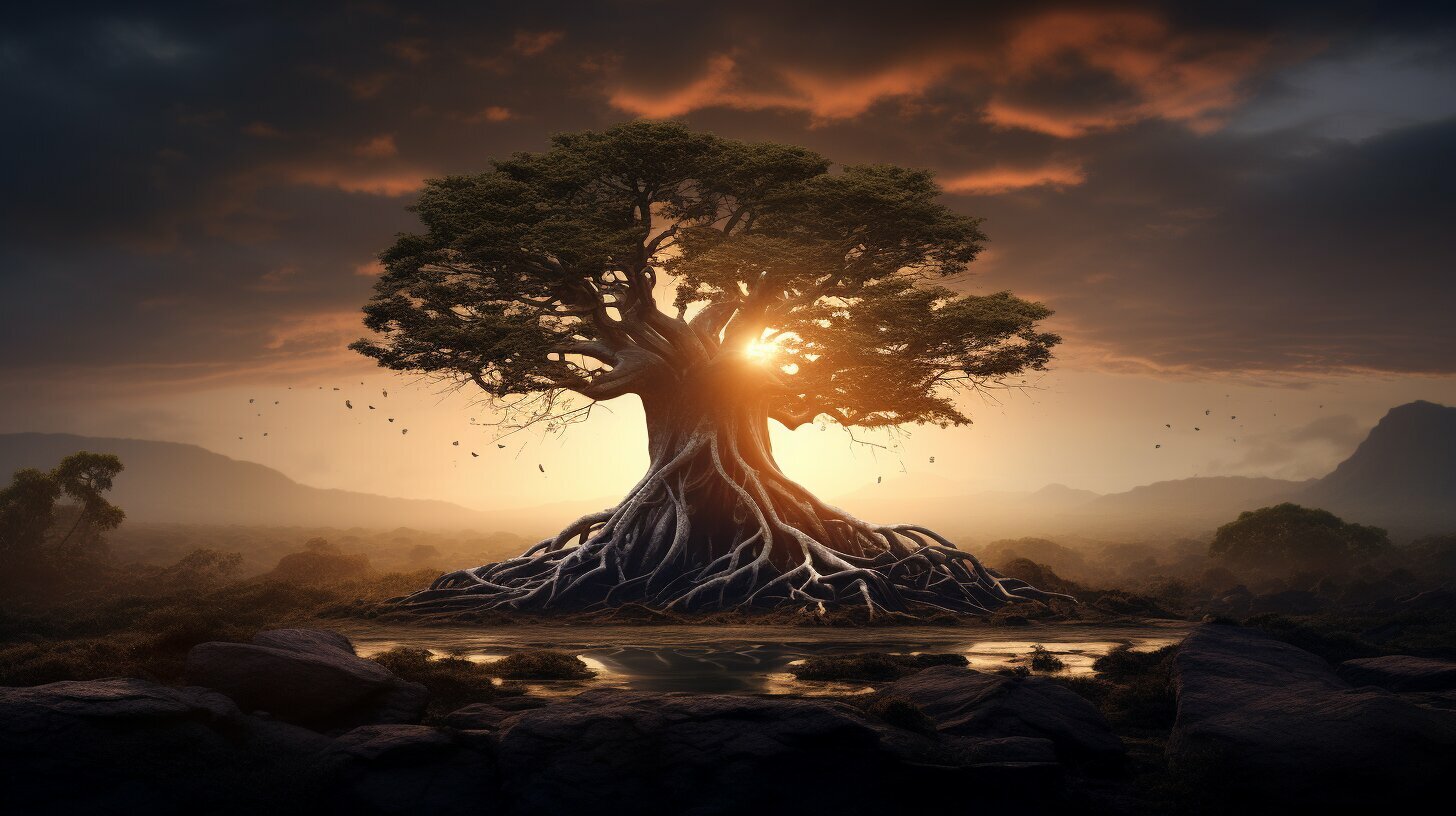Unraveling the Mystery: Why is Africa Called the Motherland?
Africa is known as the Motherland due to its rich history and cultural importance that spans across the continent. The term “Motherland” highlights Africa’s status as the birthplace of humanity and the ancestral home of all human beings. Its diverse geography, diverse population, and long prehistory have shaped a complex and fascinating story of human interaction and migration.
Key Takeaways:
- The term “Motherland” emphasizes Africa’s significance as the birthplace of humanity and the ancestral home of all human beings.
- Africa’s diverse geography and population contribute to its cultural and societal diversity.
- The historical movements and interactions of different groups within Africa have shaped its population and cultural landscape.
- Africa’s languages provide significant insights into its history and origins.
- Recognizing Africa as the Motherland highlights the need to acknowledge its diversity and individual stories.
The Birthplace of Humanity: Africa’s Significance
Africa holds the title of the Motherland due to its central role as the birthplace of humanity and its profound impact on the development of human civilization. This vast continent is not just a geographic location; it represents the origins of our species and the cradle of our existence. Africa’s significance cannot be overstated, as it has shaped the course of history and influenced cultures worldwide. From the earliest Homo sapiens to the complex societies that emerged over thousands of years, Africa’s rich and diverse history sets it apart.
One of the main reasons Africa is revered as the Motherland is its role in the evolution and spread of Homo sapiens. It was in Africa that our ancestors first emerged and began their journey across the globe. The fossil record tells us that human beings originated in Africa around 200,000 years ago, making it the birthplace of our species. This fact alone is enough to justify Africa’s status as the Motherland, as it is the ancestral home of all people, regardless of their current location or ethnicity.
Furthermore, Africa’s influence on human development goes beyond the mere origin of our species. It is in Africa where early humans developed advanced tools, mastered fire, and established complex social structures. Ancient African civilizations, such as Egypt, Kush, and Axum, laid the foundation for later civilizations and made significant contributions to science, art, architecture, and governance. The legacy of these civilizations continues to resonate in the present, reminding us of Africa’s enduring significance.
As we explore Africa’s history and significance as the Motherland, it is crucial to dispel the simplistic and monolithic understanding that often accompanies discussions about the continent. Africa is not a homogeneous entity but a tapestry of diverse cultures, languages, and traditions. It is a land of contrasts, where ancient traditions blend with modern aspirations, and where vibrant communities coexist side by side.
African Culture and the Concept of Motherland
African culture is intricately tied to the concept of the Motherland, fostering a sense of pride and connection among both Africans and the African diaspora. The continent’s rich and diverse cultural heritage plays a vital role in shaping this bond, creating a powerful sense of identity and belonging.
One of the key elements that contribute to this connection is the shared history that Africans and the African diaspora have with their ancestral homeland. Through art, music, dance, and storytelling, African culture celebrates the traditions and customs that have been passed down through generations. These cultural expressions serve as a bridge, connecting individuals to their roots and reminding them of their African heritage.
“Africa is not just a place on a map; it is a feeling, a spirit, and a way of life.”
African pride is another significant aspect of the relationship between African culture and the concept of the Motherland. The resilience, strength, and contributions of Africans throughout history are a source of inspiration and admiration. From ancient civilizations like Egypt and Mali to modern-day icons like Nelson Mandela and Chimamanda Ngozi Adichie, Africans have made a profound impact on the world. This sense of pride manifests in various ways, from wearing traditional clothing to celebrating African festivals and engaging in community projects that uplift African communities.
The connection between African culture and the concept of the Motherland extends beyond physical borders. The African diaspora, spread across the globe due to historical events like the transatlantic slave trade, maintains a deep connection to Africa. Through cultural practices, language retention, and the preservation of traditions, members of the African diaspora honor their African roots and uphold the concept of the Motherland.
| Key Points | |
|---|---|
| African culture fosters a sense of pride and connection | |
| A shared history strengthens the bond between Africans and the African diaspora | |
| African pride celebrates the contributions of Africans throughout history | |
| The African diaspora maintains a deep connection to Africa |
The Symbolism of Africa as the Motherland
The symbolism of Africa as the Motherland is deeply rooted in its rich heritage, representing a connection to ancestral roots and a shared human story. The term “Motherland” evokes a sense of nurturing, warmth, and familiarity, highlighting Africa’s significance as the birthplace of humanity. It encapsulates the idea that Africa is not just a geographical location, but a place of origin for all human beings.
This symbolism is reflected in the diverse cultures and traditions found across the continent. Africa’s cultural heritage is a tapestry of vibrant colors, rhythmic music, and captivating storytelling. From the rhythmic beats of the djembe in West Africa to the intricate beadwork of the Maasai in East Africa, each culture contributes to the rich mosaic that is Africa. The Motherland represents the preservation of these cultural legacies and the celebration of African pride.
One cannot ignore the historical significance that Africa holds in shaping the world. Many of the greatest civilizations, such as Ancient Egypt, the Mali Empire, and the Kingdom of Kush, thrived on African soil. The pyramids of Giza, the Great Zimbabwe ruins, and the rock-hewn churches of Lalibela stand as testaments to Africa’s architectural prowess and ancient wisdom. The Motherland represents this history and the resilience of African people throughout the ages.
It is important to recognize that Africa is not a monolithic entity but a continent with diverse nations, languages, and ethnic groups. The Motherland encompasses this diversity and calls for a deeper understanding of Africa’s individual stories. From the bustling markets of Lagos to the stunning landscapes of the Serengeti, each country and region adds a unique flavor to the tapestry of Africa. Embracing Africa as the Motherland means embracing the kaleidoscope of cultures, languages, and traditions that make it truly extraordinary.
| Key Takeaways |
|---|
| Africa as the Motherland represents a connection to ancestral roots and a shared human story. |
| Africa’s rich cultural heritage contributes to the symbolism of the Motherland. |
| The historical significance of Africa shapes the concept of the Motherland. |
| The Motherland encompasses Africa’s diversity and individual stories. |
Uncovering Africa’s Rich History and Diversity
Africa’s rich history and diverse heritage contribute to its significance as the Motherland and foster a deep sense of pride among its people. This vast continent is not only the birthplace of humanity but also a melting pot of cultures, languages, and traditions.
One of the remarkable aspects of Africa’s history is its immense size and the countless number of countries within its borders. This extensive geography has resulted in a complex tapestry of histories, each with its unique stories and influences. From the ancient kingdoms of Egypt and Mali to the thriving empires of Ethiopia and Zimbabwe, Africa has a rich and diverse past that spans thousands of years.
The diversity of Africa’s people is equally fascinating. The continent is home to five major divisions of humanity, with blacks, whites, Pygmies, Khoisan, and Asians all calling Africa their home. This diversity not only contributes to Africa’s cultural and societal richness but also underscores the complexity of human migration and interaction.
| Major Divisions | Description |
|---|---|
| Blacks | Indigenous African populations |
| Whites | Colonial settlers, predominantly of European descent |
| Pygmies | Forest-dwelling groups with distinct physical characteristics |
| Khoisan | Indigenous hunter-gatherer communities of southern Africa |
| Asians | Communities with Asian ancestry, such as those in Madagascar |
Africa’s languages also provide significant insights into its history and origins. With over 1,500 distinct languages categorized into four broad families – Afro-Asiatic, Niger-Congo, Nilo-Saharan, and Khoisan – Africa’s linguistic diversity is unparalleled. Each language family tells a different story of migration, interaction, and cultural exchange.
In conclusion, Africa’s status as the Motherland is not just a symbol; it is deeply rooted in its rich history, diverse heritage, and cultural vibrancy. Understanding and celebrating Africa’s complexity is essential for appreciating the continent’s significance and fostering a sense of pride among its people.
Exploring the Roots of African Migration and Interaction
Africa’s history is replete with diverse migrations and interactions that have shaped its population and contributed to the concept of the Motherland. The continent’s geographical features, such as its expansive plains, towering mountains, and winding rivers, have provided both barriers and conduits for human movement throughout the ages.
One of the most significant migrations in African history is the Bantu expansion, which occurred around 3,000 years ago. The Bantu people, believed to have originated in West Africa, gradually spread across the continent, bringing with them their language, culture, and agricultural practices. This migration played a pivotal role in shaping the ethnic and linguistic diversity of sub-Saharan Africa today.
Another intriguing interaction in African history is the Indonesian colonization of Madagascar. This migration, which took place around 1,500 years ago, resulted in the settlement of Austronesian-speaking people from Southeast Asia on the island. Their arrival in Madagascar and subsequent interactions with the local Malagasy population have had a lasting impact on the island’s culture and genetics.
The Roots of African Languages
Africa’s linguistic diversity is another testament to its rich history of migration and interaction. The continent is home to over 1,500 distinct languages, categorized into four broad families: Afro-Asiatic, Nilo-Saharan, Niger-Congo, and Khoisan. Each language family represents a different wave of migration and settlement, highlighting the complex tapestry of African society.
| Language Family | Number of Languages |
|---|---|
| Afro-Asiatic | Approximately 300 |
| Nilo-Saharan | Approximately 200 |
| Niger-Congo | Approximately 1,500 |
| Khoisan | Approximately 30 |
“Language is the road map of a culture. It tells you where its people come from and where they are going.” – Rita Mae Brown
Understanding the linguistic landscape of Africa provides valuable insights into its history and origins, as well as the connections between different regions and communities. It highlights the ongoing interplay between migration, cultural exchange, and the evolution of societies across the continent.
The complex web of migrations and interactions in Africa’s history underscores the richness and diversity of the Motherland. From the Bantu expansion to the Indonesian colonization of Madagascar, these movements have shaped Africa’s population distribution, cultural practices, and linguistic diversity. Each individual migration and interaction adds a new layer to the continent’s story, amplifying the concept of Africa as the Motherland and emphasizing the need to celebrate its diversity while recognizing its common origins.
Conclusion
Through this exploration, we have uncovered the reasons behind Africa’s designation as the Motherland, emphasizing the need to appreciate its diversity and acknowledge its central role in human history.
Africa, often referred to as the Motherland, holds a special place in our collective consciousness due to its rich and diverse history, culture, and significance in shaping the world. As the birthplace of humanity, Africa stands as the ancestral home of all human beings, connecting us to our shared origins and reminding us of our common humanity.
However, it is essential to recognize that Africa is not a monolithic entity. Its immense size and the vast number of countries within it have led to a simplistic understanding that fails to capture the continent’s complexity and individual stories. Africa’s diverse geography, prehistory, and distinct divisions of humanity have shaped its population distribution and contributed to its cultural and societal diversity.
The historical movements and interactions of different groups within Africa, such as the Bantu expansion and the Indonesian colonization of Madagascar, have had profound consequences for the continent’s modern landscape. The presence of Southeast Asians in Madagascar is a testament to the complexities of human migration and exploration, providing a fascinating glimpse into Africa’s intricate tapestry.
Moreover, Africa’s languages offer significant insights into its history and origins. With over 1,500 distinct languages categorized into four broad families, the linguistic diversity of Africa reflects the intricate web of human interactions and cultural exchanges that have taken place throughout the ages.
In conclusion, understanding Africa as the Motherland is not only an acknowledgment of its central role in human history but also a call to appreciate its diversity and individual stories. By recognizing Africa’s rich heritage, complex interactions, and cultural significance, we can foster a deeper appreciation for the continent and its contributions to our collective human experience.
FAQ
Why is Africa called the Motherland?
Africa is often referred to as the Motherland due to its rich and diverse history, culture, and significance in shaping the world. The term highlights Africa’s status as the birthplace of humanity and the ancestral home of all human beings.
What is the significance of Africa as the Motherland?
Africa’s significance as the Motherland lies in its role as the birthplace of humanity and its immense influence on global history. Its diverse geography, cultural heritage, and societal diversity contribute to its importance as the Motherland.
How does African culture connect to the concept of the Motherland?
African culture has a deep connection to the concept of the Motherland, with many African diaspora communities feeling a strong sense of pride and belonging towards their ancestral homeland. The Motherland often acts as a symbol of African heritage and cultural identity.
What is the symbolism behind Africa being referred to as the Motherland?
Africa being referred to as the Motherland carries symbolic significance, representing the continent’s role as the birthplace of humanity and the source of cultural and ancestral roots. The term emphasizes the nurturing and protective qualities associated with a mother.
How does Africa’s rich history and diversity inform the concept of the Motherland?
Africa’s rich history, cultural heritage, and societal diversity inform the concept of the Motherland by highlighting the multitude of stories and experiences within the continent. Recognizing Africa as the Motherland involves celebrating its diversity and individual narratives.
What are the roots of African migration and interaction?
Africa has a complex history of migration and interaction, with various groups shaping its population and cultural landscape. Movements such as the Bantu expansion and Indonesian colonization of Madagascar have had profound consequences for the continent. African diaspora communities also maintain connections with their ancestral homeland.
How should we understand Africa as the Motherland while acknowledging its diversity?
Understanding Africa as the Motherland involves recognizing its central role in human history and the diverse stories and experiences within the continent. Celebrating Africa’s diversity is essential to honoring its complexity and individual narratives.






